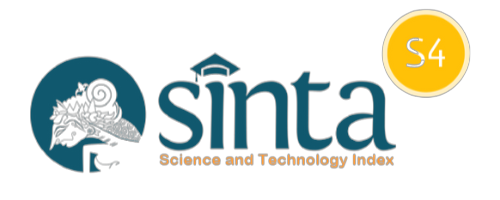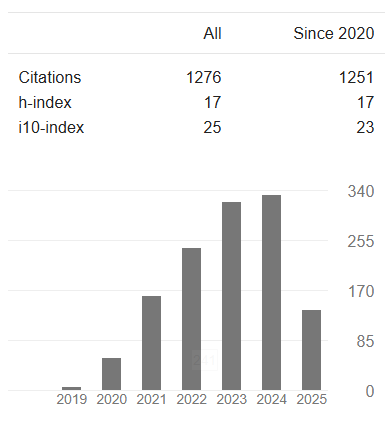Variants of Tax Planning Method Based on Tax Consultant’s Perpective
DOI:
https://doi.org/10.14421/EkBis.2024.8.1.2143Keywords:
Tax Consultant, Tax Planning, Corporate Taxpayers, Best PracticeAbstract
The purpose of this research is to reveal the metode best practice of the tax consultant's side regarding corporate tax planning. The method used in this research is qualitative with a case study approach. This method is considered suitable because it helps researchers to reveal in dept nh the practice of tax planning. The results of the study reveal that the best practices most often used by tax consultants are three, namely depreciation in terms of differences between accounting and tax regarding the useful life and methods used. inventory by choosing between First In First Out and average, both of these methods have their respective advantages and disadvantages, making differences of opinion between senior and junior tax consultants, the last practice most often used is cost shifting. These three practices are proven to be able to minimize the tax burden, but of course there must be considerations made by tax consultants in choosing the best practice to do. The findings of this study can be useful for taxpayers in terms of education and learning related to tax planning, besides that for future researchers it is recommended not only to focus on practices but also to lead to their meaning.
Downloads
References
Adigamova, F. F., & Tufetulov, A. M. (2014). Training of tax consultants : Experience and prospects. Procedia - Social and Behavioral Sciences, 152(843), 1133–1136. https://doi.org/10.1016/j.sbspro.2014.09.288
Creswell, J. W. (2014). Research Design Pendekatan Metode Kualitatif, Kuantitatif dan Campuran. PUSTAKA BELAJAR.
Feldstein, M. (2006). The Effect of Taxes on Efficiency and Growth (Vol. 2, Issue May).
Ferdiansyah, B. (2022). KPK panggil dua tersangka kasus suap pemeriksaan pajak - ANTARA News Kalimantan Timur. Antarnews.Com. https://kaltim.antaranews.com/berita/144441/kpk-panggil-dua-tersangka-kasus-suap-pemeriksaan-pajak
Gîrla, L., & Rahmani, U. (2016). Illegal Tax Planning Through Actions Which Are Defined Criminal According To The Tax Laws. 8(8), 147–155.
Hammarberg, K., Kirkman, M., & De Lacey, S. (2016). Qualitative research methods: When to use them and how to judge them. Human Reproduction, 31(3), 498–501. https://doi.org/10.1093/humrep/dev334
Herwati, E. B., & Kumala, R. (2021). Analysis of The Implementation of Tax Planning in Efforts to Save Corporate Income Tax Expense in PT GMT Year 2017. International Journal of Trends in Accounting Research, 2(1), 130–139. https://journal.adaindonesia.or.id/index.php/ijtar/index
Hutami, B. C., & Ludigdo, U. (2017). Pengaruh Faktor Individu Terhadap Pengambilan Keputusan Etis Konsultan Pajak Dalam Melakukan Tax Planning. Journal of Chemical Information and Modeling, 53(9), 1689–1699. file:///C:/Users/User/Downloads/fvm939e.pdf
Hyett, N., Kenny, A., & Dickson-Swift, V. (2014). Methodology or method a critical review of qualitative case study reports. International Journal of Qualitative Studies on Health and Well-Being, 9(1). https://doi.org/10.3402/qhw.v9.23606
Juhandi, N., & Lakasse, S. (2022). Reviews of Tax Planning in Indonesia: The Implementation & Analytical Approach. Priviet Social Sciences Journal, 2(2), 1–4. https://doi.org/10.55942/pssj.v2i2.167
Mangoting, Y., Widuri, R., & Eoh, T. S. (2019). The Dualism of Tax Consultants’ Roles in the Taxation System. Jurnal Akuntansi Dan Keuangan, 21(1), 30–37. https://doi.org/10.9744/jak.21.1.30-37
Nataliia, H., & Oleksand, H. (2022). Development And Strengthening The Institute Of Tax Consultants In The Tax System Of Ukraine. Bisnis, 3(1), 8–14.
Nurhidayati, R., & Suhartini, D. (2021). Determinan Pembuat Keputusan Etis Konsutan Pajak. 9(4), 144–159.
Palil, M. R. (2010). Tax Knowledge and Tax Compliance Determinants in Self Assessment System in Malaysia. University of Birmingham, 1.438. https://etheses.bham.ac.uk/id/eprint/1040/
Rosembuj, T. (2022). Tax, Coercion, and the Moral Impact of the Law.
Saputra, K. E. (2014). Fiscuss and Tax Consultant’s Understanding of Taxpayers Behaviour: A Phenomenological Study.
Sivolapenko, E., & Sapozhnikova, E. (2020). Tax planning as an effective method to reduce the tax burden of organizations in the Russian Federation. E3S Web of Conferences, 210. https://doi.org/10.1051/e3sconf/202021013007
Suandy, E. (2006). Perencanaan Pajak (Edisi 3). Salemba Empat.
Sugiharto, Suhasto, I. N., Wibawa, K. D., & Mashitoh. (2022). The Role of Tax Consultants Against Taxpayers in Indonesia to be Aware of Paying Tax. Akunttansi Dan Sistem Informasi, 7(1), 98–103.
Vu, T. A. T., & Le, V. H. (2021). The Effect of Tax Planning on Firm Value: A Case Study in Vietnam. Journal of Asian Finance, Economics and Business, 8(2), 973–979. https://doi.org/10.13106/jafeb.2021.vol8.no2.0973
Downloads
Published
Issue
Section
License
Copyright (c) 2024 Jayanti Mandasari, Fibriyani

This work is licensed under a Creative Commons Attribution-ShareAlike 4.0 International License.





























 This work is licensed under a
This work is licensed under a 